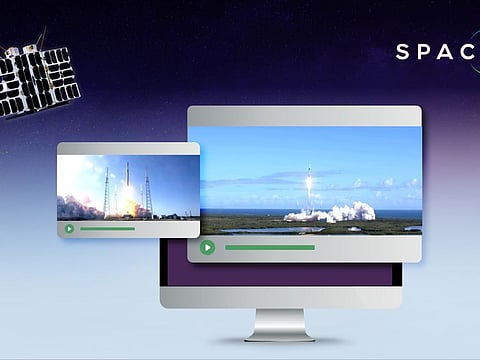Dubai’s Earth observation nanosatellite DEWA-SAT 2 to be launched April 12
Dewa calls on public to watch livestreaming of launch

Dubai: Dubai Electricity and Water Authority (DEWA) on Tuesday said its nanosatellite DEWA-SAT2 would be launched on Wednesday, April 12, and called on the public to watch the livestreaming of the launch from the US.
The 6U nanosatellite for remote sensing applications will be launched on from 10.30am UAE time. The nanosatellite will be launched by a SpaceX Falcon 9 rocket from Vandenberg Space Force Base in California, USA, DEWA said.
The authority said the nanosatellite launch had been rescheduled to April 12, one day later than previously planned (April 11), due to unfavourable weather conditions.
Nanosatellite
DEWA SAT-2 nanosatellite was designed and developed at DEWA’s Research and Development Centre at the Mohammed bin Rashid Al Maktoum Solar Park, in cooperation with NanoAvionics in Lithuania. DEWA-SAT2 features a high-resolution camera (4.7 meters) that will be used for Earth observation missions.
The high-resolution camera provides continuous line-scan imaging in seven spectral bands from approximately 500km orbit.
How it will help
DEWA said the new satellite is also equipped with Infrared equipment to measure greenhouse gases.
It will improve the efficiency of DEWA’s generation, transmission, and distribution divisions by monitoring solar power plants and enhancing the accuracy of generation predictions.
This will be achieved through forecasting of weather patterns, seawater temperature and salinity, as well as monitoring of electricity transmission lines.
Additionally, the satellite will aid in detecting water leaks and identifying any changes in the infrastructure, further optimising DEWA’s operations.
Boosting solar park's efficiency
DEWA is the first utility in the world to launch nanosatellites to improve its planning, operation, and maintenance activities.
Using satellite network communication, IoT and Artificial Intelligence contributes to improving the efficiency of photovoltaic solar panels at the Mohammed bin Rashid Al Maktoum Solar Park, the largest single-site solar park in the world, using the Independent Power Producer (IPP) model.
Live streaming of the launch can be watched on DEWA’s website or SpaceX YouTube channel.



